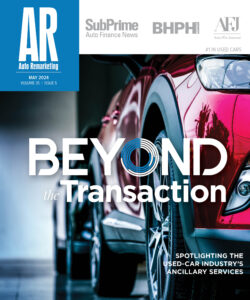NADA Expresses Concerns About Proposed Agency
WASHINGTON, D.C. — Having voiced its concerns to the U.S. Treasury Secretary about the recently proposed consumer protection agency that would further regulate auto dealers' financing endeavors, the National Automobile Dealers Association is calling on dealers to take action.
As most likely know, Treasury Secretary Tim Geithner, along with the Department of Defense and consumer advocacy groups, pushed for this new agency during a press conference last week.
Essentially, the Treasury Department is trying to make the scope of the Senate-proposed Bureau of Consumer Finance Protection include auto dealers, according to NADA, which also suggested that the oversight of this agency regarding auto financing would be "far beyond current law."
NADA suggests that the proposal contains "unsubstantiated allegations regarding auto finance."
In response, NADA chairman Ed Tonkin wrote Geithner "immediately" to express NADA's concerns with the administration's public stance. He also asked to meet with Geithner in person.
According to Tonkin's letter, the new agency could potentially reduce "the availability of dealer-assisted financing … depriving millions of consumers, including service members, of affordable financing and, in many cases, the only financing available to them."
Furthermore, NADA argues that "the Obama administration is using informal, non-scientific polling data as a basis for advancing the president's reform agenda."
The administration's methods cast some shadows of doubt regarding whether such a consumer protection agency could tackle vital credit issues "in a fair and responsible manner," according to NADA.
"Dealers were granted an exemption from this new super-agency in the House bill, but the administration is aggressively seeking to pull dealers under the new agency," explained David Regan, NADA vice president of legislative affairs.
"Dealers are urged to remind each of their senators that dealers did not cause the financial meltdown and dealers are already extensively regulated by the Federal Reserve Board, the Federal Trade Commission and state consumer protection agencies," Regan added. "Unless changed, the Senate financial reform bill is likely to disrupt access to auto credit at a time when the industry and consumers can least afford it."

 View The Latest Edition
View The Latest Edition

